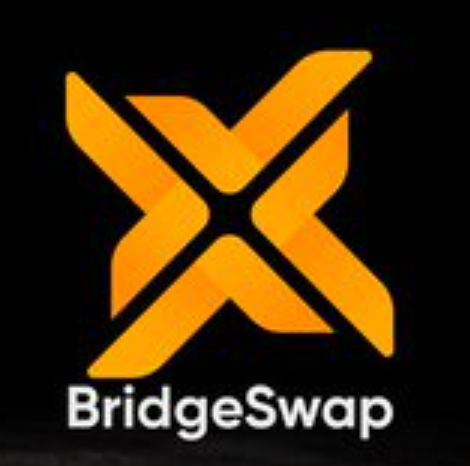Bridgeswap – Bridging Finance and Blockchain in a Decentralized System

Decentralized exchanges are blockchain-based applications that enable many users to trade tokens directly with one another. The capability of smart contracts makes this possible. Smart contracts are blockchain-based programs that execute predetermined actions automatically when certain conditions are satisfied.
The primary objective of the Decentralized exchange is to enable individuals to trade digital assets directly with one another, without the need for intermediaries as in traditional banking. Therefore, DEX grants ordinary people complete ownership over their digital assets, granting them the ability to conduct commerce with anyone at any moment.
When utilizing a DEX, users store their crypto assets in their own wallets, as opposed to the exchange's custodial wallet. When a user want to trade crypto assets on a DEX, he need merely connect his wallet to the DEX's pool of crypto assets. Once a transaction is complete, he disconnects his wallet from the Dex and stores the assets in his wallet.
The operation of DEX is diametrically opposed to that of CEX. Before trading on CEX, users must transfer their crypto assets to a CEX custodial wallet. Thus, the CEX holds the user's cryptocurrency asset. The user's crypto asset is stored in the CEX's central database.
On a CEX like as Coinbase and Binance, the traditional order book is utilized to match buyers and sellers based on order prices and volume. Book orders are not utilized in DEX. In lieu of this, liquidity pools are utilized. Liquidity pools are pools of crypto assets placed on the blockchain of a DEX. These liquidity pools are sourced by liquidity providers, who are independent investors. Providers of liquidity pools make a return in the form of transaction fees charged to pool users.
When a user executes a trade on a DEX, the smart contracts on the DEX blockchain automatically transfer the crypto asset from the liquidity pool to the user's wallet. The term for this notion is Automatic Market Making. Therefore, DEX functions as an automated Market Make.
What exactly is Bridgeswap?
Bridgeswap is a decentralized exchange that enables instantaneous crypto token swapping, liquidity provision, and yield-based reward staking. Bridgeswap aims to bridge Defi on Web 3.0 from traditional finance in a decentralized manner to establish a fair, sustainable, and community-driven DAO global economy. Bridgeswap has created four new products to achieve this goal: Bridgeswap trade, Bridgeswap farms, Bridgeswap pools, Bridgeswap Defi 2.0 zap, and Bridgeswap lottery.
Bridgeswap Trade.
Bridgeswap trade is a decentralized exchange that permits instantaneous exchange of Bep20 crypto tokens for another Bep20 using liquidity pools.
Farms in the Bridgeswap area.
By contributing tokens to our liquidity pools, Bridgeswap farm lets you to earn rewards in the form of tokens and share in transaction fees.
BridgeSwap pools.
Bridgeswap pools allow you to stake Bris tokens to earn additional Bris tokens. This is an excellent method for generating passive revenue from your tokens. Instead of passively storing your tokens, you may put them to work in BridgeSwap pools to earn free tokens. Consider staking it if you wish to make your Bris tokens productive.
Bris Pool, by hand.
Manual Bris pool allows you to manually stake Bris tokens. This requires you to visit Bridegswap's website to restake or reinvest. This incurs a small transaction fee in the form of BNB.
Automatic Brispool
With Auto Bris pool, a wager is made once and then forgotten. The auto compounder function of Bridegswap reinvests your Bris tokens, minus a tiny charge. The Bris tokens you receive by staking are APY tokens.
Bridgeswap Defi 2.0 Zap
Our team designed Bridgeswap Defi 2.0 Zap as a one-of-a-kind system to provide a long-term solution to some of the most significant difficulties affecting the Defi and Farming protocols.
Problem
Most Defi protocols struggle to obtain sufficient money for their operations. Therefore, there is a perpetual competition between multiple Defi protocols for liquidity for services such as yield farming, staking, etc. The operation of Defi protocols depends on the liquidity of their protocol users. They rent liquidity for their activities because they do not own it. This presents numerous obstacles.
Solution
Bridegswap's remedy for this issue is the Defi 2.0 zap. This innovative new approach enables liquidity providers to exchange their liquidity pools for discounted Bris tokens. This technology provides Bridegswap with liquidity, so we do not need to rely entirely on liquidity suppliers for our liquidity pools. The Defi 2.0 zap proceeds are put in a designated wallet as a reserve. When necessary, Bridgeswap can rely on this liquidity. This accumulated cash assures liquidity longevity, hence avoiding the long-term liquidity issues seen by the majority of Defi protocols.
This approach also provides as an incentive for liquidity providers to acquire Bris tokens at a discount. If the price of the Bris token skyrockets, liquidity providers can sell these discounted tokens at much higher rates for substantial profits. Therefore, both liquidity sources and Bridgeswap stand to benefit.
More Information Bridgeswap
Website: https://bridgeswap.app/
Gitbook: https://bridgeswap-exchange-1.gitbook.io/bridgeswap/
Twitter: https://twitter.com/bridgeswap_dex
Telegram: https://t.me/bridgeswap
Github: https://github.com/Bridgeswap-Dex
Medium: https://bridgeswap.medium.com/
Author
username : Miroslava Vesela
profile link btt : https://bitcointalk.org/index.php?action=profile;u=3403186
MY WALLET ADDRESS
0x7eC7e44aeD43F70E87A639447ae317EB121DD107